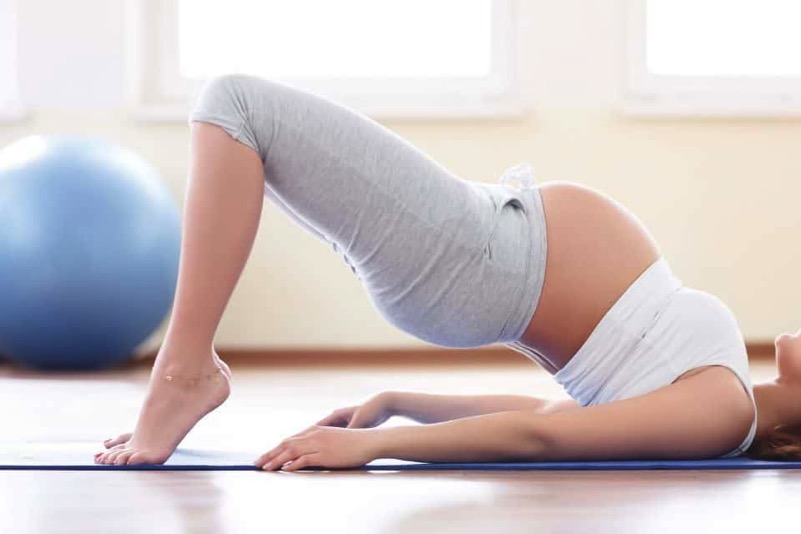
Achieving balance in life is hard enough as it is, but when you are pregnant, it might seem as something unreachable. With a range of emotional and physical changes happening all at once, a pregnant woman might start to feel overwhelmed, and although it is perfectly normal to feel a certain dose of fear about the incoming, life-changing transition, when things become too much, that is when most women start struggling to keep up and usually turn to things that may lead to a decline in their physical and mental health. In order for you to get acquainted with all the different changes that happen during pregnancy, as well as how it impacts our bodies and minds, we have gathered some useful information that will help you regain balance during pregnancy and achieve physical and mental well-being.
The impact of pregnancy on physical and mental stability
Pregnancy is, without a doubt, one of the most beautiful periods in every woman’s life. Ask any mother how she felt during pregnancy and she will tell you that no matter the difficulties, she would go through all of that again if she had to just so she can see a new life being brought into this world. However, all its beauty aside, a big life transition such as pregnancy can often leave a woman on shaky ground when it comes to her mental and physical health. After all, carrying a baby around for nine months is no easy task, considering the amount of weight that women gain during pregnancy, as well as the hormonal imbalance and its impact on both the body and the mind. Worrying and fearing about what’s coming can often leave moms-to-be feeling anxious, and sometimes even depressed, which can lead to a formation of negative thought patterns that can affect their overall well-being.
Some common mental health problems during pregnancy
Contrary to popular belief, postpartum depression is not the only mental health problem that pregnant women experience. A number of pregnant women, as previously mentioned, suffer from a variety of disorders caused by worries and fears about what will happen when the time comes for them to give birth. Such is prenatal depression, the most severe form of maternal depression that can affect a pregnant woman according to some experts, and it is usually accompanied by negative feelings and the overall state of anxiety and sadness about what is coming. Different factors need to be taken into account, so as to get an insight into the likelihood of developing those disorders while pregnant, such as the woman’s medical history and her family’s history of mental health; going through a rough patch either at work or at home, as well as prenatal substance abuse as a way of relieving discomfort that comes with pregnancy.

Getting help as a way of achieving mental and physical stability
Pregnancy is a time of hope and anticipation, but it can also be a time when a woman stresses the most and oftentimes tries to find a way to get a sense of comfort, even if it means reaching for alcohol or drugs. Sources of momentary pleasures, the effects of substances do not last long and have a detrimental effect on the mother, as well as the unborn infant. In the wake of America’s opioid crisis, many moms-to-be are finding themselves in an uncomfortable position of being pregnant while addicted, and are often stigmatized. However, that is starting to gradually improve, with many pregnant women breaking the cycle by opting for Orange County rehab where they can get a safe, supportive, and confidential treatment that prioritizes mother’s health and the health of her baby. By doing so, mothers-to-be are able to regain control over their lives and recuperate the strength for when the baby comes.
Maintaining balance during pregnancy through low-impact physical activities
Just like life, pregnancy has its ups and downs, and the best way to deal with them is to try to maintain balance as much as you possibly can. Getting help from others during the time of need is one way of achieving balance, but it should not stop there. Your body changes during pregnancy, and that is why you need to maintain optimal fitness levels. Regular exercise will ensure you are in a good mood and it will also provide a much-needed energy boost. Moderate-intensity physical activities are best for women in the first couple of months, which then reduce as the pregnancy progresses. Opt for safe activities such as walking, swimming, and low-impact aerobics, and practice a few times a week for optimal results. Not only will physical activities help regain control over your health, but they will also make you feel good since you will be doing something that is great for both you and the baby.
Pregnancy is a big blessing, but it also comes with a range of physical and emotional changes many women are not prepared for. These tips will help you achieve mental and physical stability during pregnancy and reintroduce balance into your life.







